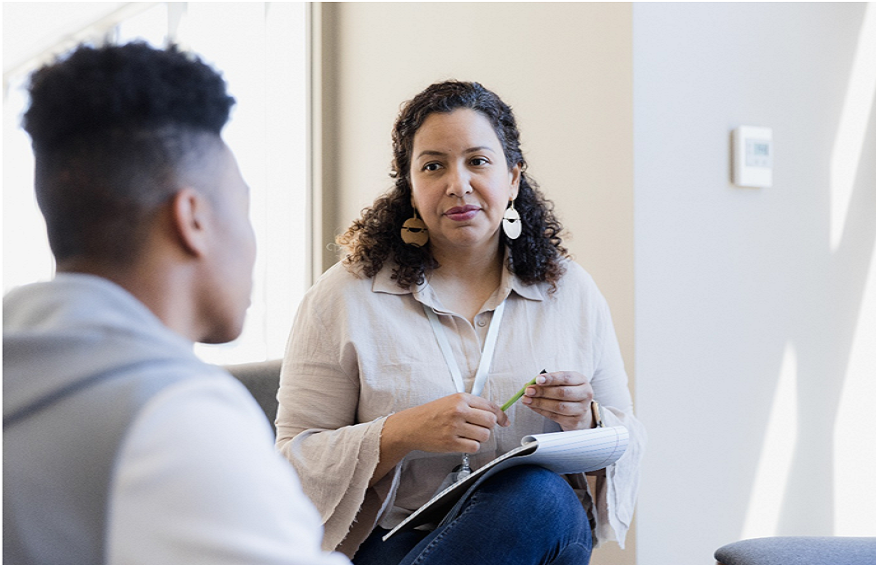Today, there is no question that a high level of cultural sensitivity and awareness is essential to work in a people-centered position. It is especially important in mental health professions such as counseling, where this tricky area must be negotiated with skill, knowledge and considerable empathy.

So what role do cultural factors play in counseling, and how can we learn and develop in this area, both in theoretical and practical terms? This article examines why cultural sensitivity and awareness are so important, as well as the main areas concerned and potential pitfalls along the way. In addition, it explores the main principles of tackling difficult subjects and looks at some of the best ways to build knowledge in this area.
Increasingly valued
Of course, cultural sensitivity has always been important to mental health. People have long experienced issues as a result of iniquitous, harsh or bullying treatment in relation to perceived racial, cultural or social differences. In the past, however, there was unfortunately far less general awareness or acceptance of just how damaging it could be, and how important it is to help people who suffer from its ill effects. Yet we are all inevitably influenced by socioeconomic factors — no person is an island, and no mental issue is entirely free of cultural influence. Indeed, understanding these factors makes it possible to construct the building blocks that will provide a full picture of the client’s situation.
Thankfully, as the understanding and awareness of cultural factors increases in the general population, it is more likely that patients will look to discuss cultural issues. These may relate to race, ethnicity, the client’s economic situation or even issues like disability and family issues. For example, if someone is having trouble in their work and have been suffering ill-treatment, is it possible that race might be a factor? Or if someone is gay, but also born into a highly religious family where homosexuality is condemned, to what extent does that complicate their experience? A well-trained counselor must handle these issues with skill and sensitivity.
The right approach
Indeed, a good counselor should be comfortable dealing with a wide range of potentially challenging topics, be it racial oppression, damaging stereotypes, ageism or intolerance. One tricky aspect is that a counselor must be able to tackle these issues regardless of whether they have personal experience of them or not. To do this successfully, it is important for the counselor to not only have the ability to empathize with the patient, but also the humility to understand the limitations of their knowledge.
It is also useful to combine this with the curiosity to learn about other people’s life situations and how cultural factors may have help shaped their values and their world view. As with so many other aspects of mental health, listening and working to understand the individual circumstances of the client is key. At the same time, it is also important not to assume anything, and to be aware that in many cases, it is not always clear how cultural factors have influenced the way people think and behave. At times, the counselor’s role may be to help guide the patient to reach a greater understanding of themselves and their place in the world.
Knowledge through training
Naturally, in addition to developing an empathetic, humble and open-minded approach, counselors are also advised to undergo formal training in these topics. There are many options available for the curious mind. In addition to a wealth of information available online regarding a wide range of cultural issues, there are also a great many books on the subject. In addition, there is a growing body of academic literature that discusses the impact of cultural issues in relation to the effect they can have on people’s mental health. Some institutions will also offer cultural sensitivity training as part of their development programs.
In terms of formal education, many universities now also offer specific courses in this area. Online doctoral programs counseling can be a great way to increase skills and knowledge, as well as learn specific techniques that can be used in practice. An EdD in Mental Health Counseling at the American International College, for example, can be taken online and offers a structured approach to increasing cultural sensitivity and awareness. In this course, students are provided with the opportunity to understand diversity in the context of theories, issues and trends related to multicultural counseling and family consultation. Students also develop their skills and the knowledge required to assist a wide range of individuals and groups by examining attitudinal and behavioral patterns of diverse people based on factors such as life stage, religious beliefs, sexual orientation, racial identity, familial dynamics and socioeconomic status.
A crucial step
There is no question that in the 21st century, a high level of cultural sensitivity is a highly prized asset. Indeed, for anyone interested in working in counseling, or any other kind of mental health profession for that matter, developing a heightened awareness of cultural factors is a crucial step in their career path. The key is not to take a once-size-fits-all approach, but always adjusting one’s work to the individual situation. The best counselors are able to respond to a wide array of factors, assist their clients or patients in handling difficulties in these areas, and help them enjoy persistent healing and growth.
In addition to developing a general awareness of cultural issues, it is important to acquire the skills, knowledge and techniques that can help one handle these areas appropriately. Be it formal education, own research, experience in the field or training courses provided by the mental health facility where one works, there are myriad ways to extend abilities in this area. And the best thing is, there is always more to learn. Developing a deep and broad understanding of these issues will not only be immensely rewarding, but is also the kind of journey that lasts a lifetime.






Leave a Reply
You must be logged in to post a comment.